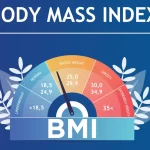How Sleep Changes After 40 and Natural Ways to Improve It
By the time we reach our 40s, many aspects of our health begin to shift — and sleep is no exception. Even those who previously had no trouble falling or staying asleep often begin to notice fragmented nights, earlier awakenings, or a general sense of restlessness. These changes are not purely anecdotal; they reflect measurable physiological and neurological adjustments that occur with age. Understanding how sleep changes after 40 — and what natural strategies can help — is essential for long-term physical and mental well-being.
Hormonal and Neurological Changes That Impact Sleep Quality
Sleep architecture begins to evolve subtly but significantly in midlife. One of the most pronounced changes involves the reduction of deep slow-wave sleep — the stage associated with cellular repair, immune function, and memory consolidation. With age, the body spends less time in this restorative phase, often leading to lighter sleep overall.
This shift is largely driven by changes in hormone levels. For women, the transition into perimenopause and menopause introduces fluctuations in estrogen and progesterone, both of which influence sleep regulation. For men, a gradual decline in testosterone can have similar consequences. At the same time, melatonin production — the hormone responsible for regulating the sleep-wake cycle — begins to drop, leading to delayed or irregular circadian rhythms.
As these changes accumulate, sleep can become more fragile, even for those maintaining healthy routines. Understanding these shifts is a critical first step in developing a supportive approach that prioritizes long-term sleep health.
Why Waking Up Tired Becomes More Common After 40
It’s not uncommon for individuals over 40 to report waking up feeling unrefreshed, even after spending a full eight hours in bed. This can be attributed in part to lighter and more fragmented sleep cycles, but it also has to do with how the body metabolizes and responds to stress.
Cortisol — a hormone associated with alertness and stress response — often begins to spike earlier in the morning as we age, causing premature wakefulness. Additionally, sleep interruptions due to increased nighttime urination (nocturia), aches, or discomfort become more frequent. The result is a night of sleep that may appear adequate in duration but lacks the depth and consistency needed for full recovery.
These issues highlight the need for natural ways to improve sleep that go beyond simply extending time in bed. Supporting hormonal balance, calming the nervous system, and enhancing the body’s own restorative processes are all essential strategies for better sleep in the second half of life.
Natural Ways to Improve Sleep That Align with Your Body’s Needs
The good news is that many people over 40 can improve their sleep without pharmaceutical interventions. Lifestyle shifts — when paired with targeted natural ways to improve sleep — can dramatically improve both duration and quality of rest.
For example, aligning sleep schedules with natural light exposure during the day can reinforce circadian rhythms. Evening routines that incorporate gentle movement, screen time reduction, or calming rituals like journaling or reading can help the body transition more smoothly into sleep.
At the same time, natural supplements designed to support the body’s evolving biochemistry can offer additional benefits. Ingredients like magnesium, L-theanine, and CBN have been shown to support relaxation without causing next-day grogginess. CBN in particular — a non-intoxicating cannabinoid — interacts with the body’s endocannabinoid system to reduce nighttime awakenings and promote sustained rest, especially when paired with sleep-supportive botanicals.
Products from trusted providers like medxtracts arizona offer CBN-based formulas specifically crafted to support sleep patterns affected by age. These formulations cater to the needs of individuals over 40 who want natural, non-habit-forming support for deeper and longer sleep.
When Sleep Issues Are a Sign of Something More
Not all sleep changes after 40 are simply due to aging. In some cases, persistent disruptions may signal a deeper issue such as sleep apnea, restless leg syndrome, or even emerging cardiovascular or neurological concerns. It’s important to distinguish between occasional difficulty and consistent patterns that interfere with daily function.
Those who experience loud snoring, gasping during sleep, or excessive daytime fatigue may benefit from clinical evaluation. Additionally, chronic stress, anxiety, or depression can all present as sleep difficulties and should be addressed holistically.
Still, for the majority of healthy adults entering their 40s and beyond, the combination of lifestyle adjustment and high-quality natural supplementation can yield noticeable improvements within a matter of weeks.
Supporting Long-Term Sleep Health Beyond Quick Fixes
Rather than seeking quick fixes, midlife is a time to invest in sustainable sleep hygiene strategies. This includes creating a bedroom environment that supports uninterrupted rest: a cool, dark room, high-quality bedding, and the elimination of noise and light disruptions whenever possible.
More importantly, sleep needs to be viewed not as a passive part of the day but as a foundational aspect of health. Prioritizing evening routines, managing stress levels, reducing alcohol intake, and supporting the nervous system through breathwork or stretching can help preserve the brain’s natural sleep mechanisms for years to come.
When paired with gentle, natural supplements that adapt to your body’s shifting rhythms, these changes can make a tangible difference in how rested and energized you feel each day.











